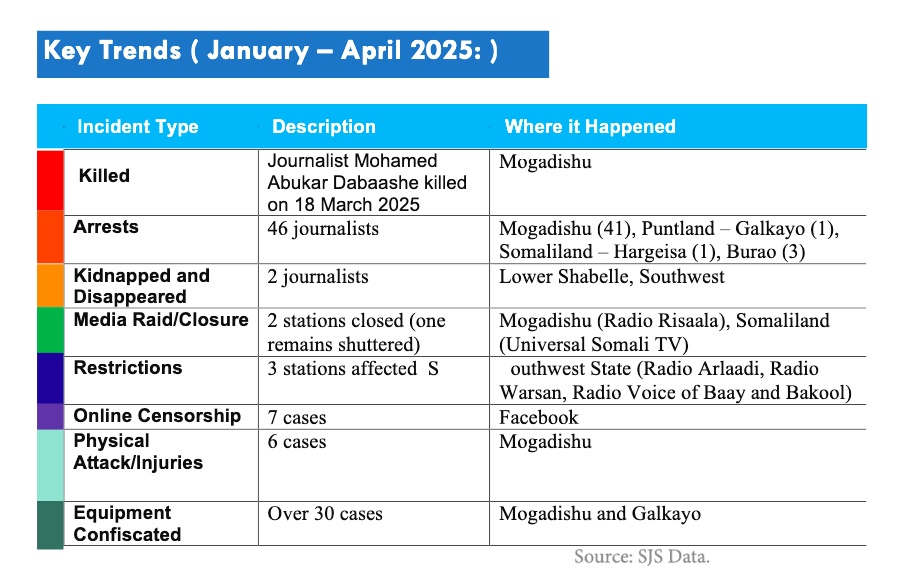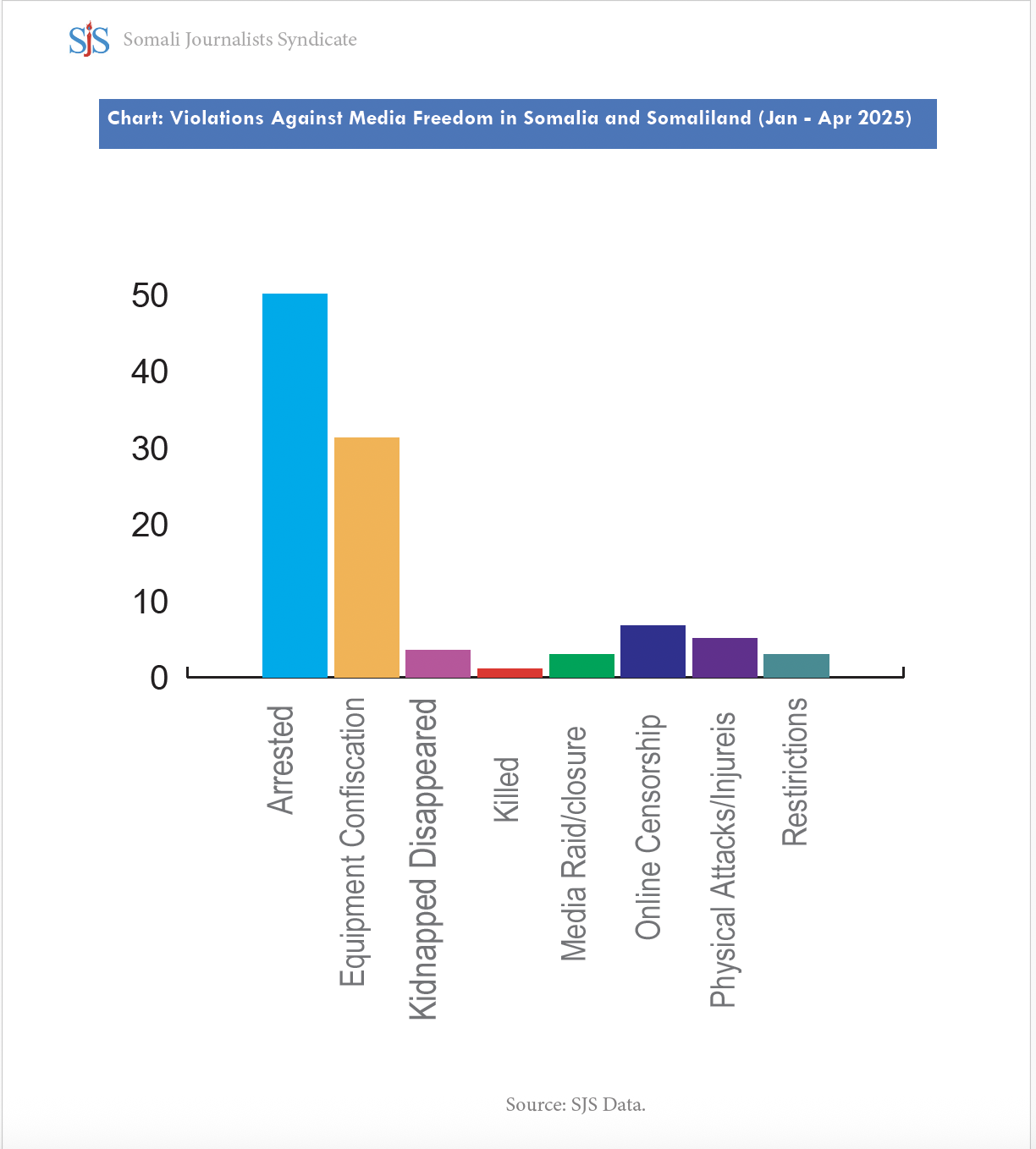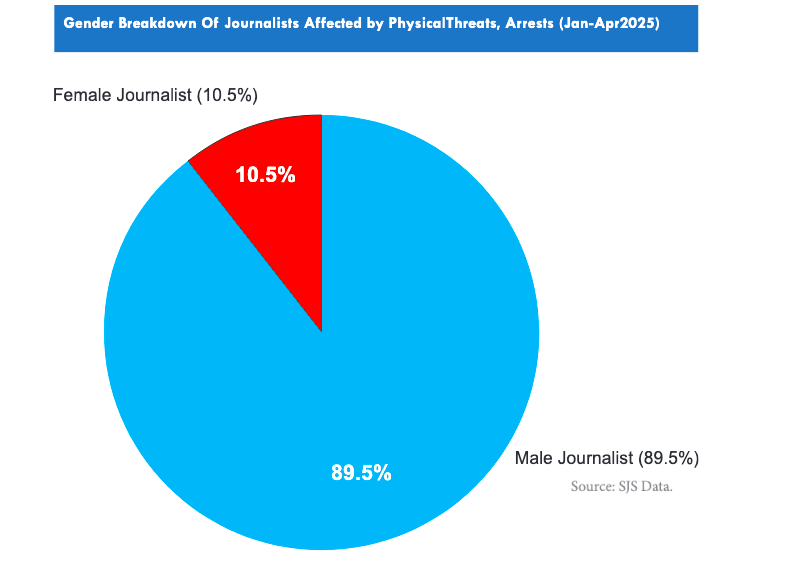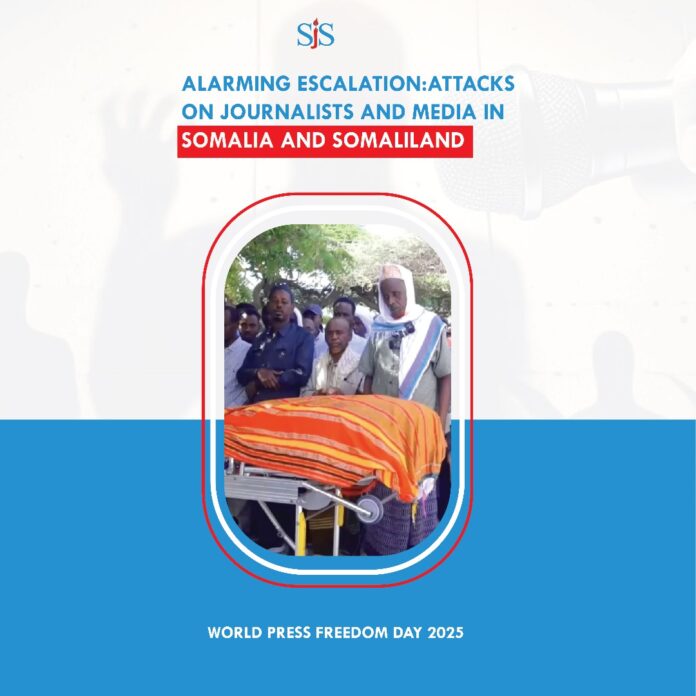MOGADISHU Somalia 3 May, 2025 (KAAB TV) – From January to April 2025, Somalia and Somaliland saw a sharp rise in attacks against journalists and media outlets. The safety of journalists remains a significant concern, especially in Mogadishu, which has become one of the most dangerous areas in the country.

On 18 March 2025, journalist Mohamed Abukar Dabaashe was killed in an Al-Shabaab bombing targeting the Somali president’s convoy near the presidential palace—one of the supposedly safest zones in Mogadishu. Impunity continues as the Somali government fails to investigate such attacks and bring those responsible to justice, including for the killings of civilians and journalists.

Between 1 January to 30 April, In total, 46 journalists were arrested or detained during this period, and two journalists were kidnapped and disappeared in Lower Shabelle, Southwest State. Southwest State also imposed restrictions on three local radio stations during Ramadan, while Somaliland closed Universal TV, and Mogadishu police raided Radio Risaala. More than 30 journalists had their equipment confiscated, and 10 others faced physical violence and intimidation.
Female journalists represented 10.5% of those affected, while 89.5% were male.
Both government forces and Al-Shabaab contributed to an increasingly hostile environment for media workers, with offline attacks, including arbitrary arrests and killings, complemented by online censorship.
Somalia’s State Security Forces and Police, many of whom are former Al-Shabaab defectors, were behind most raids, arrests, and intimidations of journalists. The National Intelligence and Security Agency (NISA) continued unlawful detentions and harassment, particularly in Mogadishu. A surge in arrests—41 in Mogadishu alone—signals a growing threat to media freedom in the capital.
Government officials, including those from the Ministry of Information and Ministry of Internal Security, openly targeted journalists critical of the government or reporting on Al-Shabaab attacks or military withdrawals. This crackdown prompted many journalists to self-censor or flee the country.

Facebook has become a key platform for journalists in Somalia, yet Meta increasingly
removed content or restricted pages, often in response to reports critical of the government or sensitive security issues. At least seven journalists and media outlets were affected by these actions during the period of this report.
Female journalists faced both physical at- tacks and online censorship, with six
incidents specifically targeted with women reporters.
The Somali Journalists Syndicate (SJS) urges immediate action at both national and
international levels to protect journalists, hold perpetrators accountable, and safeguard media freedom against the ongoing repression.


